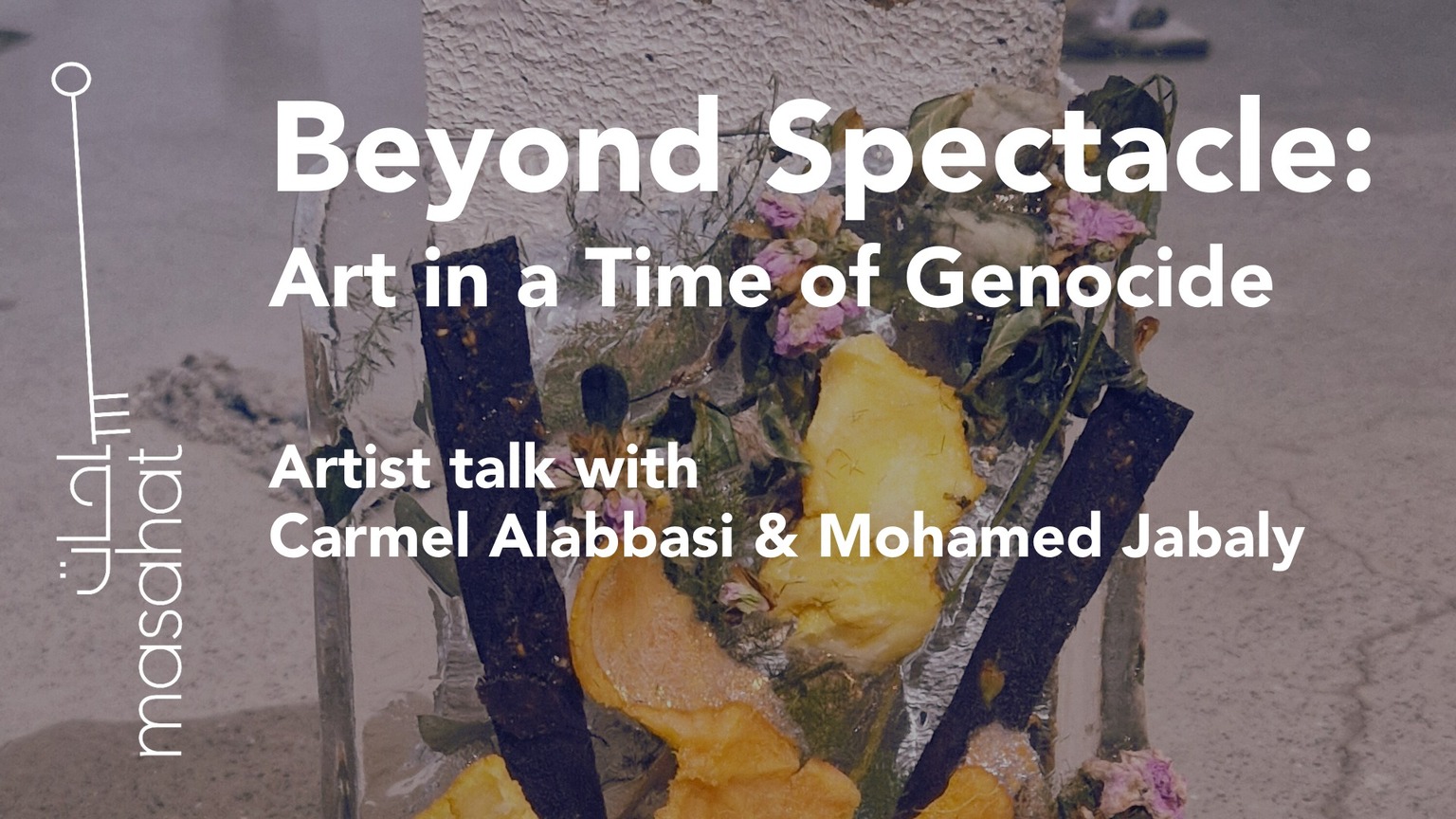Artist talk

Beyond Spectacle: Art in a Time of Genocide. Artist talk with Carmel Alabbasi and Mohamed Jabaly
In this moment of genocide, what does it mean to produce art? How do we refuse the mechanisms that aestheticise suffering, depoliticises grief and turn struggle into a spectacle? How can artists and cultural producers insist on practices that do not merely acknowledge Palestine but act in response to its demands?
Welcome to this artist talk & soup with Carmel Alabbasi and Mohamed Jabaly at Oslo National Academy of the Arts, moderated by Zeina Bali from Masahat.
🕛 Wednesday 26. February, kl. 18.00
📍KHiO - Oslo National Academy of the Arts, Fossveien 24 (main building by the reception gallery)
Soup will be served at the event.
Both artists are currently pursuing a Master's degree in Fine Art. Before the talk, you can visit their graduation projects / exhibition on view until 28 February.
The talk will address some of the dilemmas and urgencies the artists have been grappling with since the onset of the genocide. We will explore the stakes of art-making when some of the world’s most powerful institutions actively sustain and justify destruction, and when the call for cultural production risks becoming a diversion from material solidarity.